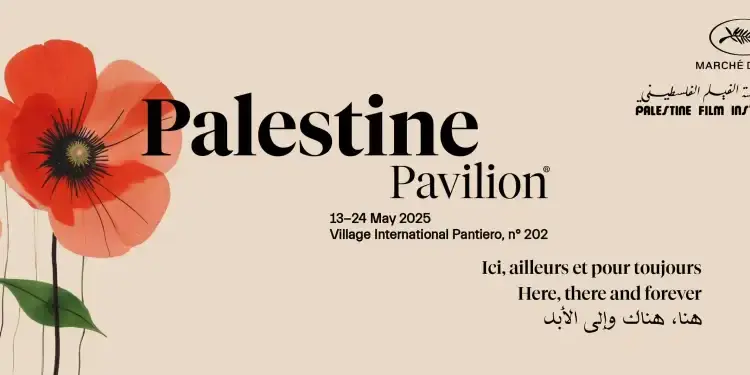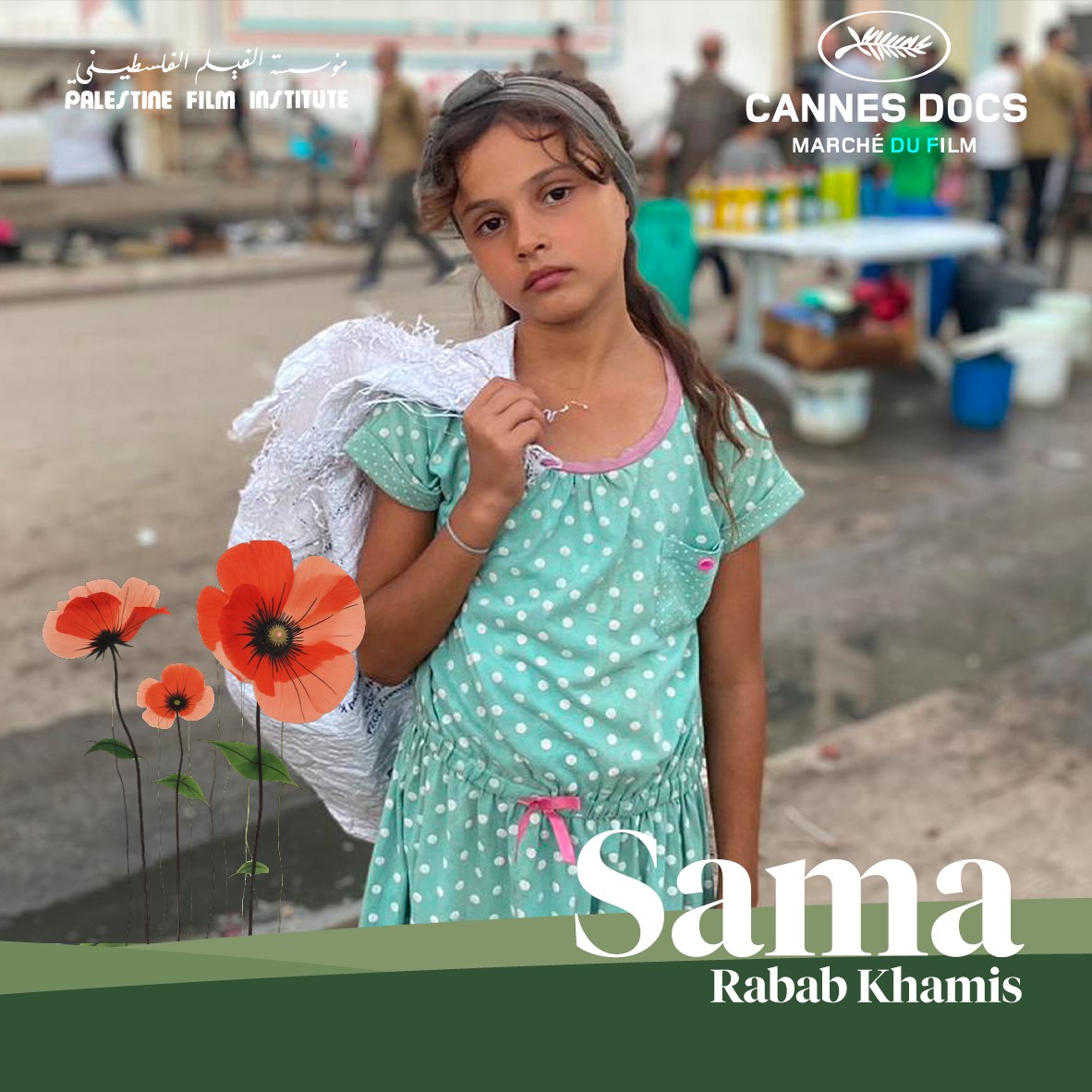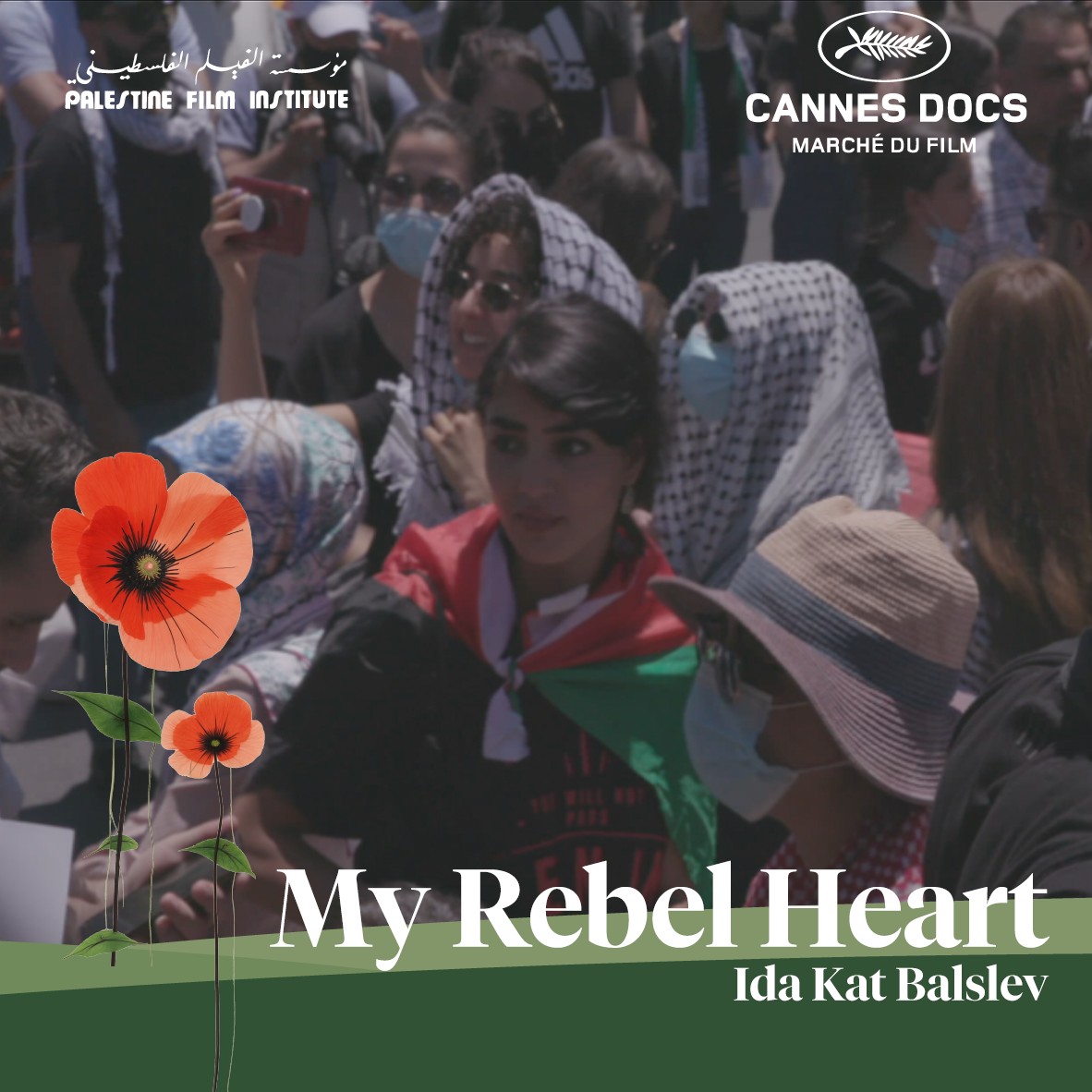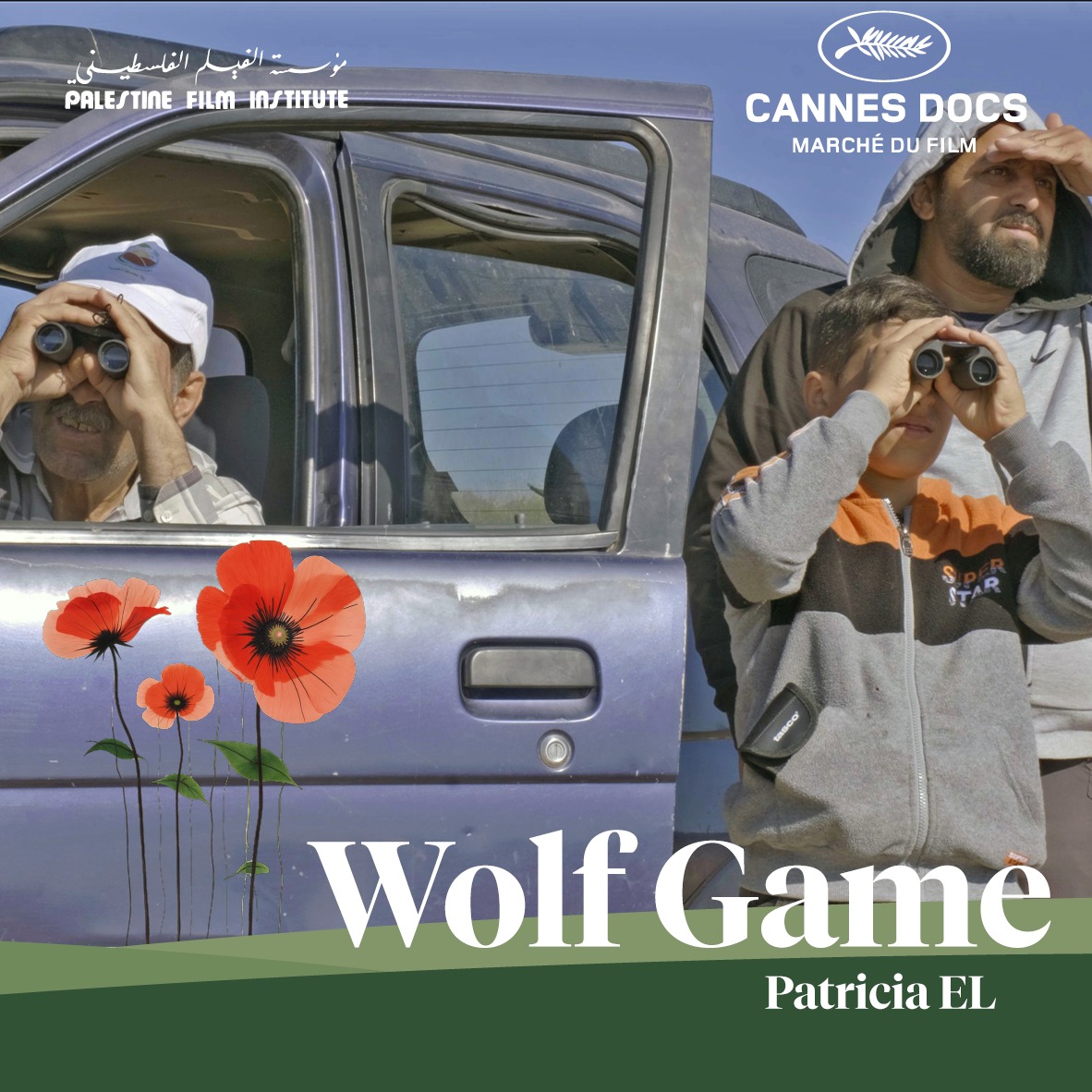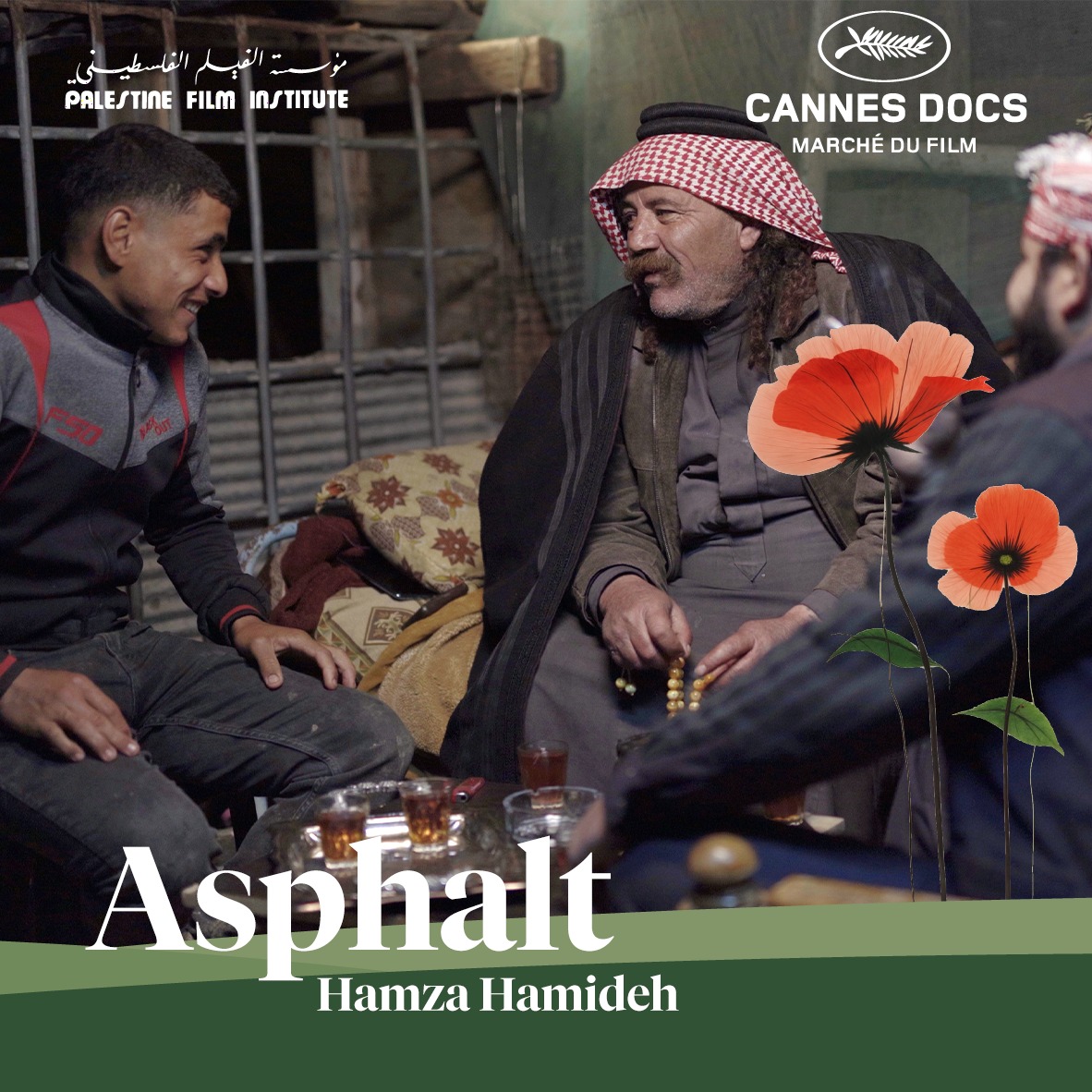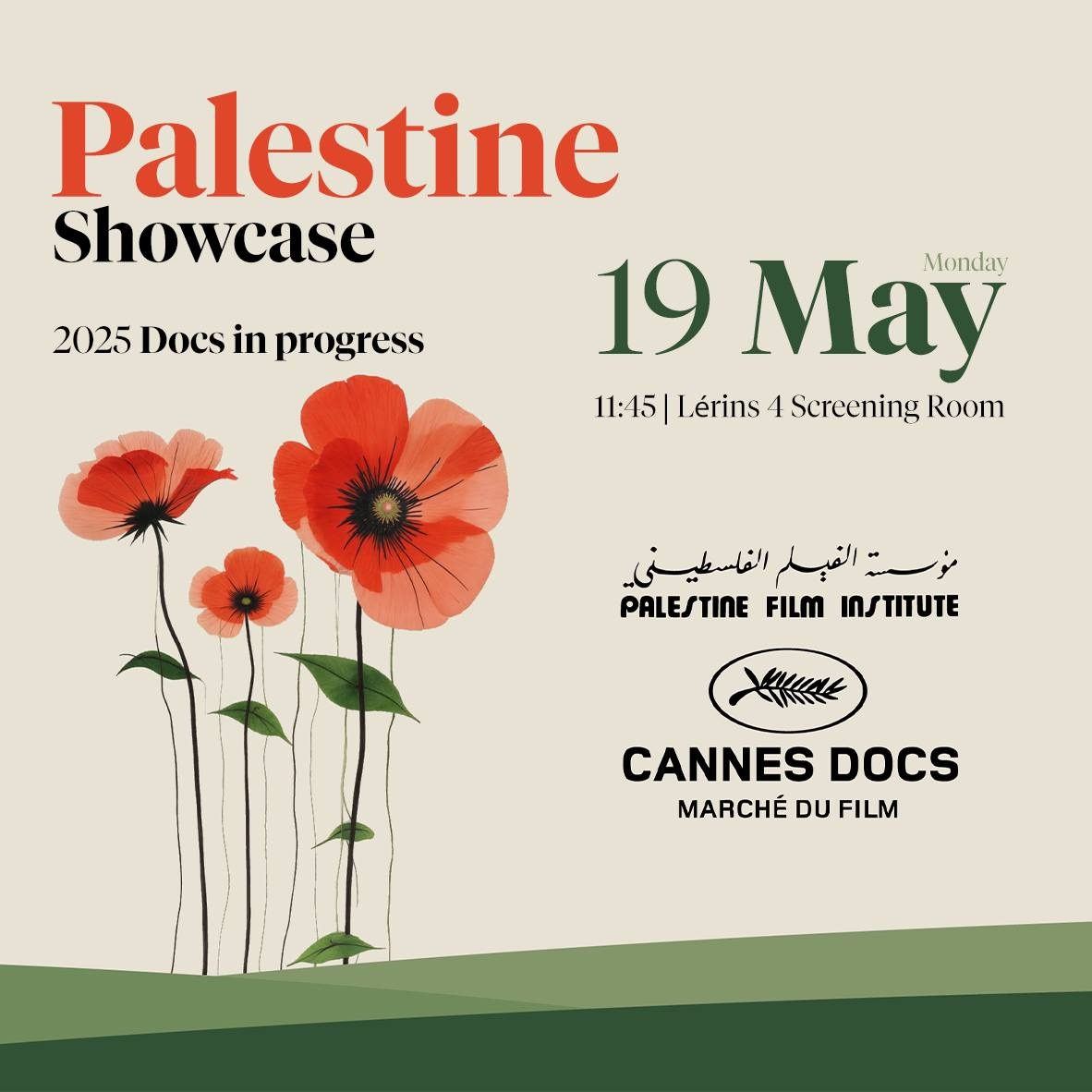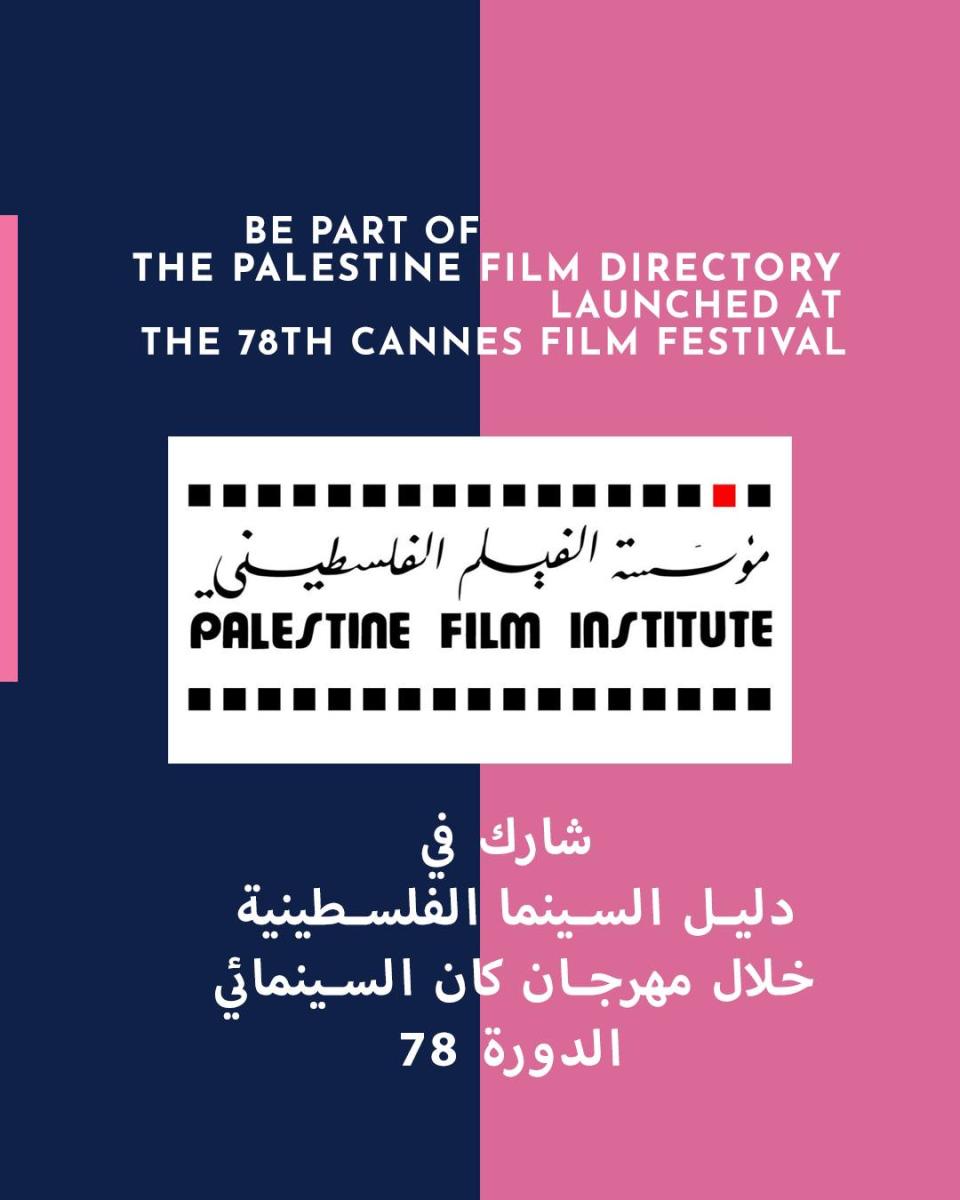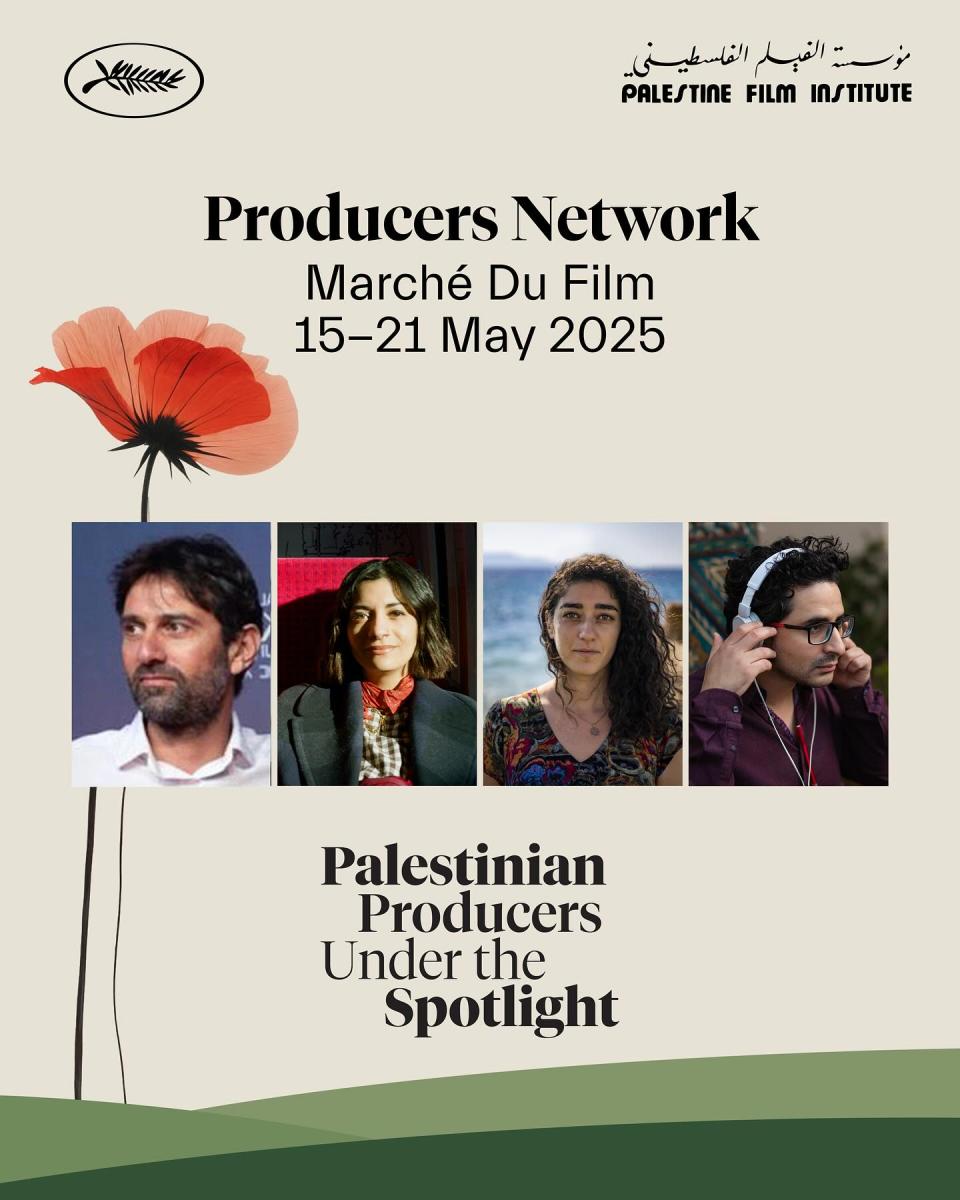From May 13 to 24, 2025, the Palestine pavilion returns to the 78th Cannes Film Festival, affirming more than ever its commitment to defending the voices, stories and Palestinian images, in a context marked by the extreme violence against the population of Gaza. Carried by Palestine Film Institute (PFI), the pavilion is a space of light in the heart of the shadows, a place where cinema becomes memory, resistance and hope.
Animated by the mission of amplifying the breath of Palestinian cinema, nourishing its visions and defending its right to exist and shine on screens around the world, the PFI reaffirms its desire to preserve a free and living Palestinian story. Despite the current genocide in Gaza, the soul of Palestine continues to speak, dream and trace the future by the objective of its filmmakers.
The Palestinian presence at the film market is made possible thanks to the generous support of many partners: the Masharawi Fund for Films and Filmmakers in Gaza, The Doha Film Institute, Watermelon Pictures, the 2048 Foundation, Hikmat Palestine, as well as several international organizations such as Cinéforom (Romande Foundation for Cinema), Documentary Association of Europe (DAE), (IEFTA), The Consulate General of France in Jerusalem, the Naas Network (Network of Arab Alternative Screens), Filmlab Palestine, Akka Films, Lightdox, Noise Film & TV, Square Eyes and film Workers for Palestine. The PFI sends them its most sincere thanks, stressing that it is thanks to this collective solidarity that the Palestine pavilion can rise within the festival.
Palestine Showcase in Cannes Docs: four documentaries in progress, four visions of a standing people
On May 19, 2025, from 11:45 a.m. to 1:00 p.m., Palestine will also occupy an important place within Cannes Docs With the presentation of Palestine Showcasea selection of four documentary feature films in progress. This showcase offers filmmakers a precious opportunity to present their work to the international cinematographic community and to assert the need to support Palestinian voices, particularly in this tragic context.
The four selected projects are:
- My Rebel Heart of Ida Kat Ballslev
Each of these films in the future embodies a facet of the Palestinian experience, in diaspora or in the field, in a plurality of forms and stories. Selected by an independent international jury, these projects benefited from personalized support from PFI consultants, as well as logistical support including accreditation and travel scholarships to allow them to participate in the festival.
A committed and united jury
In a strong press release, the members of the jury – Keisha Nicole Knight, Rasha Salti and Francesco Giai via – expressed the particular emotional load which accompanied this selection. According to them, ” The Palestine Film Showcase in Cannes this year has an even deeper meaning ». In a context of unprecedented pain and suffering for the Palestinian population, they say they have been animated by a deep feeling of responsibility, affirming their full solidarity with the whole of the Palestinian cinematic community.
“” More than ever, documentary cinema requires space for freedom, courage, memory and commitment “, They declare, emphasizing the essential role of the documentary as an act of testimony, resistance and transmission. They insist on the importance of preserving these spaces of creation and speech, especially when the voices they carry are threatened with disappearance.
The members of the jury also say they are honored to have had access to a set of projects such as rich and diverse this year. They were impressed by the plurality of the perspectives brought by these films in gestation, and by the transcontinental scope of the proposals. According to them, these projects reflect not only the extent of the Palestinian diaspora, but also the intergenerational transmission of a deep attachment to an identity in struggle.
They wanted to thank the Palestine Film Institute for the confidence which was granted to them, by formulating the hope that ” Each of these projects will find its way to the culmination ». Through this declaration, the jury recalls that Palestinian cinematographic creation, as fragmented as it is geographically, carries in it an intimate coherence, a cry of dignity, and a memory that resists attempts to erase.
A repertoire to strengthen links
Today, while genocidal violence continues to strike Palestine, it is essential to recall that the destruction of Palestinian lives and lands is also accompanied by an attempt to erase Palestinian history, stories and social relations. Faced with this, it remains urgent to support Palestinian networks and the importance of communities in the creation and dissemination of works by and on Palestinian.
It is in this spirit that the PFI invites all the cinematographic, collective and production companies directly related to Palestinian cinema or the Palestinian film festivals to participate in the 2025 edition of the 2025 of the 2025 edition Palestine Film Directorya bilingual online directory (Arab/English). This new edition will be launched in Cannes in May 2025. Previous editions are available on the PFI website, where the call for contributions is currently open under the section Cannes 2025 – Call for Directory.
👉 Registration link: https://www.palestinefilminstitte.org/en/cannes-2025/call-for–directory?
Four Palestinian producers at the Producers Network
In continuation of its commitment to the visibility of Palestinian cinema, Palestine Film Institute had launched a call for candidates for emerging Palestinian producers. This is now done: four Palestinian producers have been selected to participate in the prestigious producers network of the film market in Cannes 2025, a strategic international space to build professional relationships, present projects and strengthen the visibility of Palestinian cinema worldwide.
The four winners are:
• Jiris Copti, from Fresco Films
• Sarah Mowaswe, by Jigsaw Productions
• May Jabareen, from Philistine Films
• Said Zagha, from Night Owls
Resistance by art
Through this return to the Cannes Film Festival, the PFI intends to recall that Palestinian cinema is not only a space for artistic expression: it is a vector of survival, narration, dignity. It is a way to make a story heard that some would like to erase, a tool to continue to dream and affirm a political and human existence.
In these dark times, the Palestinian voices brought to the screen shed our consciousness. Thanks to the mobilization of committed partners and the unfailing commitment of its filmmakers, Palestine affirms, by image and by speech, that it will not be reduced to silence.
Neïla Driss


